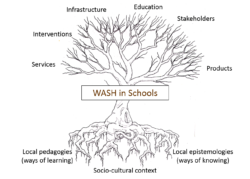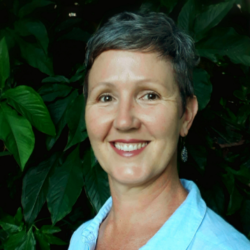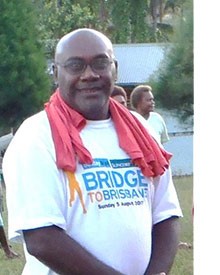Local ownership of WASH responses are required in Pacific schools

Dr Dani Barrington, Lecturer in Water, Sanitation and Health, University of Leeds. Follow Dani on Twitter: @Dani_Barrington
Dr Michelle Redman-MacLaren, Senior Research Fellow, James Cook University. Follow Michelle on Twitter: @shelmaclaren
Humpress Harrington, Lecturer, Pacific Adventist University / PhD candidate, James Cook University.
Pacific Island Countries and Territories (PICTs) experience some of the lowest levels of improved water, sanitation and hygiene (WASH) on Earth.
Prior to 2015, Millennium Development Goal (MDG) 7c aimed for a step increase in access to basic water and sanitation. Current Sustainable Development Goal (SDG) 6 aspires to universal access to safely-managed water and sanitation, reaching all people with better-than-basic services, requiring a huge improvement in quality, quantity and reliability of water, and the appropriate treatment of human waste. The WASH community have a mammoth task: for the 4.5 billion people who lack access to safely managed sanitation to gain access by 2030, this would require over 800 thousand people to gain access EVERY DAY (not accounting for population growth!). However, our response requires more than attention to scale. A catch-cry of the SDGs has been “Leave No One Behind”. We have learned that it can be very difficult to reach the most vulnerable and marginalised with WASH; ensuring that 95% of households in a village have access to a safe toilet might require less effort than ensuring it for that last 5%, who may have been excluded or overlooked for many reasons, such as caste, disability or poverty.
We recently published an open access systematic review investigating how WASH systems within schools in PICTs support the health and educational outcomes of those traditionally marginalised in this context: girls and students with a disability. We defined the “WASH in schools system” as products, services, stakeholders, educational initiatives, internal and external interventions, and infrastructure. Using a local metaphor, system components can be visualised as the branches of a tree, where the roots of the tree are the socio-cultural, epistemological (ways of knowing) and pedagogical (ways of learning) contexts.

Figure 1: A local metaphor for WASH systems in schools. Figure adapted from http://cliparts.co/clipart/3695501 (CC-BY)
Although there is a lot of WASH in schools literature available globally, as authors who have lived or worked in PICTs for many years, we recognise that systems examined in the literature review cannot just be interpreted as isolated branches of the tree. There is a need to also consider local socio-cultural, pedagogical and epistemological contexts, or the roots of the tree. Without considering the roots in PICTs’ settings, benefit persistence of WASH systems won’t be seen – an unfortunately common occurrence in PICTs.
Our review highlighted that there is very little published in the peer-reviewed or grey literature with regards WASH and girls in PICT schools, and none with regards students with disabilities in PICT schools. Across the published and unpublished literature, we found only 12 studies to include in our qualitative review. Three of the studies were program descriptions which demonstrated the potential to support student-centred approaches to WASH in schools that reflect local contexts:
- A program by Appropriate Technologies in Papua New Guinea, where female students directed the project, identifying the required actions and designing appropriate sanitation facilities
- A program by World Vision PNG, where a participatory approach was incorporated into WASH training
- A program by Live & Learn Environmental Education, which used a participatory tool, “Rapid Assessment of Perception” to understand how students perceive hygiene in their own village. This resulted in the creation of “new knowledge, attitudes and practices through participation and thinking”
We recognise that knowledge documented in the literature is not universal, and that there are most likely more examples where WASH systems have been improved through student or community-led initiatives in PICTs. Non-school and non-WASH settings may also be instructive. Given the evidence we did examine, it is clear that the centralising of initiatives within local contexts of knowing and learning is enhancing the likelihood of improved WASH outcomes in schools, particularly for girls.

Dani J Barrington is a Lecturer in Water, Sanitation and Health at University of Leeds, where she uses participatory and action research approaches to address water, sanitation and hygiene issues in low-resource contexts. Dani is also Editor-in-Chief of Journal of Humanitarian Engineering and an Editorial Board Member of Waterlines.
 Michelle Redman-MacLaren is a public health researcher known for her ability to facilitate action-oriented research for positive health outcomes. She achieves this through participatory, decolonising health research with Pacific Islander and Indigenous Australian peoples, sensitive to culture, spirituality and gender.
Michelle Redman-MacLaren is a public health researcher known for her ability to facilitate action-oriented research for positive health outcomes. She achieves this through participatory, decolonising health research with Pacific Islander and Indigenous Australian peoples, sensitive to culture, spirituality and gender.

Humpress Harrington is a lecturer at Pacific Adventist University Atoifi Campus East Kwaio, Solomon Islands. He is involved in lymphatic filariasis and soil transmitted helminth research, and health research capacity building activities. Humpress is also a PhD candidate at James Cook University.
